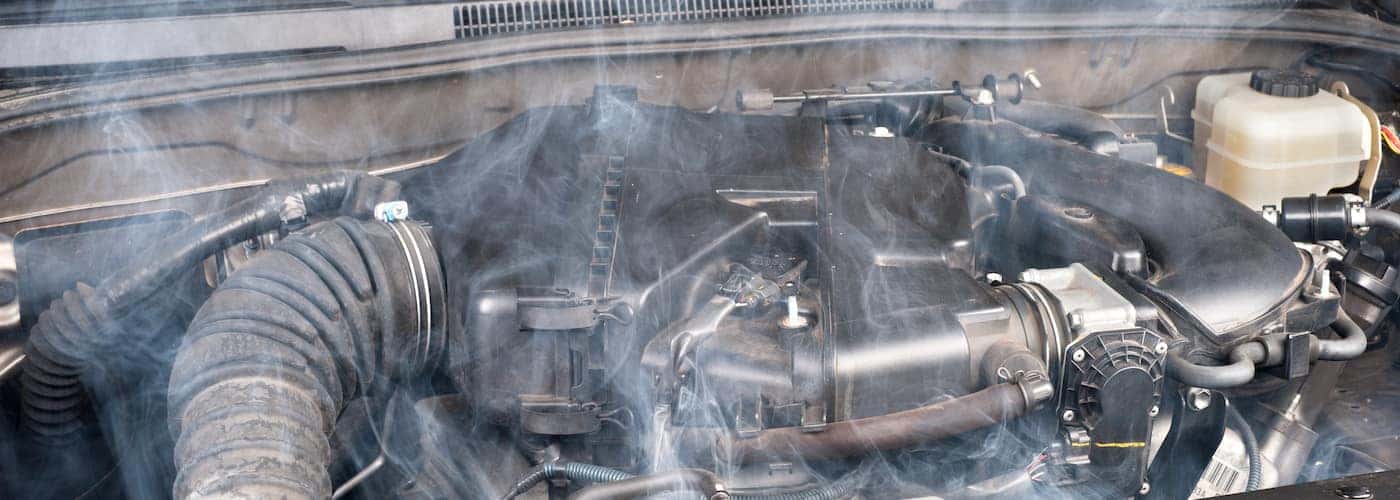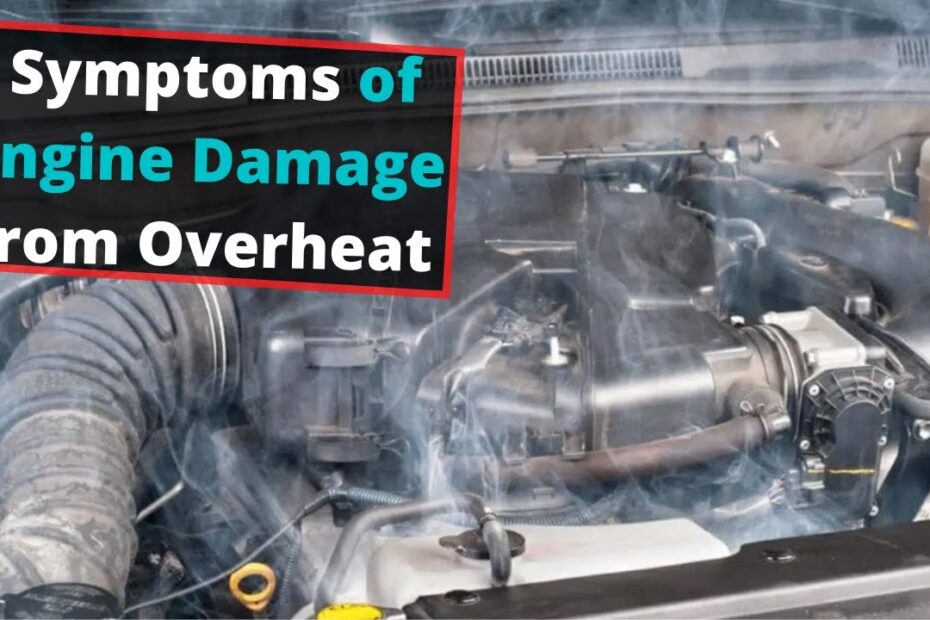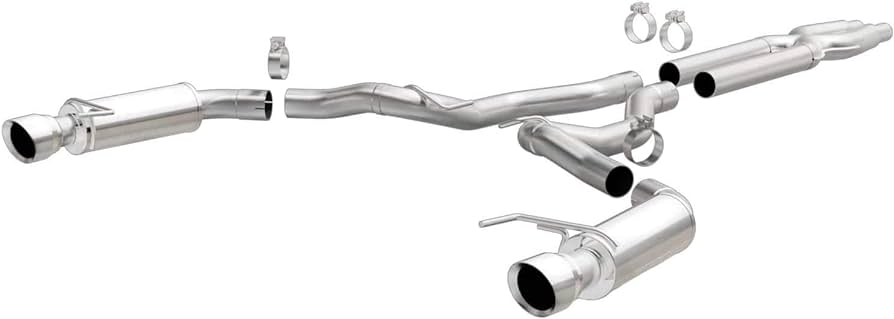To tell if an engine is damaged from overheating, check for signs such as smoke, loss of power, or unusual noises. Overheating can cause serious damage to the engine’s components, so it’s important to address any symptoms promptly to prevent further issues.
Neglecting to address an overheating engine can result in engine failure or costly repairs in the long run. Regular maintenance and monitoring of coolant levels, radiator, and thermostat can help prevent overheating and ensure the longevity of your engine. If you suspect any damage or are unsure about the condition of your engine, it’s advisable to consult a professional mechanic for a thorough inspection and assessment.
Common Signs Of Engine Damage
Spotting signs of engine damage due to overheating is crucial to prevent further problems. Here are some Common Signs of Engine Damage you should look out for:
Smoke Coming From The Engine
If you see smoke coming from your engine, it may indicate severe damage from overheating.
Burning Smell
A burning smell from your engine can be a clear sign of overheating and potential damage.

Credit: www.hendrickatlanta.com
Checking For Fluid Leaks
Fluid leaks can be a telltale sign of engine damage caused by overheating. It is important to regularly check for fluid leaks to identify any potential issues with your engine. There are two crucial fluids to assess when checking for leaks: coolant and oil. By inspecting these fluids, you can quickly determine if your engine has been damaged by overheating.
Assessing Coolant Levels
Checking your coolant levels is essential in determining if your engine has suffered damage from overheating. Coolant helps regulate the temperature of your engine and prevents it from overheating. Here’s how you can assess your coolant levels:
- Open your vehicle’s hood and locate the coolant reservoir.
- Ensure your engine is cool before removing the radiator cap.
- Carefully remove the cap and check the coolant level inside the reservoir.
- If the coolant level is below the recommended mark, it could indicate a leak in the system.
Inspecting Oil Leaks
Oil leaks can also be an indication of engine damage resulting from overheating. Oil lubricates various engine components and helps prevent friction and overheating. Follow these steps to inspect for oil leaks:
- Locate the oil dipstick under the hood of your vehicle.
- Remove the dipstick and wipe it clean using a cloth or paper towel.
- Reinsert the dipstick all the way back into its tube.
- Take it out again and check the oil level and consistency.
- If the oil level is significantly low or if you notice any discoloration or a burnt smell, it may indicate an oil leak.
Regularly checking for fluid leaks is crucial in identifying engine damage caused by overheating. By assessing coolant levels and inspecting oil leaks, you can quickly detect any issues and take appropriate actions to prevent further damage to your engine. Remember, early detection is key to maintaining the longevity and efficiency of your vehicle’s engine.
Examining Performance Issues
When it comes to determining if your engine has been damaged from overheating, examining performance issues is crucial. Loss of power and overheating while driving are two common signs that your engine may have been affected. By understanding these indicators, you can take the necessary steps to address the problem promptly and prevent further damage to your vehicle.
Loss Of Power
One telltale sign of engine damage from overheating is a sudden and noticeable loss of power. If you find that your vehicle is not accelerating as it used to or struggles to reach higher speeds, it could indicate underlying issues with your engine. This loss of power is caused by the excessive heat compromising the engine’s internal components, such as the pistons and valves.
When the engine overheats, the metal components expand, leading to reduced clearance between the moving parts. As a result, the engine has to work harder to generate power and maintain its normal performance level. If you experience this loss of power, it is imperative to address the issue promptly to prevent further damage and potential breakdown on the road.
Overheating While Driving
Another red flag that your engine may be damaged from overheating is the occurrence of overheating while driving. If you notice your temperature gauge climbing into the red zone or observe steam or smoke coming from under the hood, it is a clear indication that your engine is not functioning optimally.
Overheating while driving can be caused by various factors, such as a malfunctioning cooling system, a faulty thermostat, or a leak in the radiator. When the engine overheats, it can lead to the breakdown of important lubricants and fluids, which are vital for proper engine performance. This breakdown can result in poor lubrication and increased friction, further damaging the engine’s internal components.
In addition to the increased temperature, overheating can also result in warped cylinder heads, blown gaskets, or even cracked engine blocks, which can be highly expensive to repair. Therefore, it is essential to address any overheating issues promptly by pulling over, allowing the engine to cool down, and seeking professional assistance if necessary.
Understanding Internal Damage
Understanding Internal Damage:
Cracked Engine Block
An overheated engine can lead to a cracked engine block, causing coolant leaks and engine malfunctions.
Warped Cylinder Head
Warped cylinder head is a common issue resulting from engine overheating, leading to poor engine performance.
Seeking Professional Help
If you suspect that your engine has been damaged from overheating, it’s crucial to seek professional assistance as soon as possible. Ignoring the signs of engine damage can lead to further complications and hefty repair costs. Consulting a mechanic and undergoing diagnostic testing is vital to accurately assess the extent of the damage and determine the appropriate course of action.
Consulting A Mechanic
When it comes to engine damage due to overheating, consulting a qualified mechanic is essential. A knowledgeable mechanic can assess the condition of the engine, identify the specific issues, and provide expert recommendations on the required repairs. It’s best to choose a reputable auto repair shop with a proven track record in addressing engine-related problems. With their expertise, they can accurately diagnose the underlying issues and propose effective solutions.
Diagnostic Testing
Diagnostic testing, including a comprehensive inspection of the engine components, is imperative to determine the extent of the damage caused by overheating. This testing includes conducting a thorough examination of the cooling system, checking for coolant leaks, inspecting the radiator and water pump, and assessing the condition of the cylinder head and gaskets. Through these diagnostic procedures, mechanics can pinpoint the specific areas of concern and devise a detailed repair plan tailored to the engine’s condition.

Credit: www.carparts.com

Credit: www.hansonsubaru.com
Frequently Asked Questions For How To Tell If Engine Is Damaged From Overheating
Will My Engine Be Ok After Overheating?
If your engine overheats, it may cause damage, but it should be checked by a professional to be sure it’s okay. Regular maintenance can help prevent overheating.
Is My Car Ruined If It Overheats?
When a car overheats, it may cause engine damage, but not necessarily ruin the car. It’s crucial to address overheating promptly to prevent further issues.
Can Overheated Engine Be Repaired?
Yes, an overheated engine can be repaired. It is important to identify and fix the underlying cause, such as a malfunctioning cooling system or low coolant levels. Prompt action and professional assistance can help prevent further damage and restore the engine’s functionality.
How Long Does It Take To Damage Engine When Overheating?
Overheating can damage an engine within minutes, especially if the temperature goes beyond the normal operating range. The severity of the damage depends on various factors like the duration of overheating and the engine’s make and model. Promptly addressing the issue and allowing the engine to cool down can help prevent major damage.
What Are The Signs Of Engine Overheating?
Symptoms include steam, high temperature gauge, and burning smell.
Can I Drive My Car If The Engine Is Overheating?
No, it’s not safe. Pull over, turn off the engine, and wait for it to cool.
What Causes An Engine To Overheat?
Issues like a low coolant level, faulty thermostat, or radiator problems.
Conclusion
In the event of engine overheating, early detection is crucial. Keep an eye out for warning signs to prevent serious damage. From coolant leaks to unusual engine noises, staying alert can save you from costly repairs. Remember, prompt action is key to preserving your engine’s longevity.
- How to Diagnose Bad Strut Mounts: Expert Tips for Quick Fixes - May 16, 2024
- How to Bypass Blower Motor Relay: 7 Expert Techniques - May 16, 2024
- How to Easily Check Ecu Ground: Essential Steps for Optimal Performance - May 16, 2024



